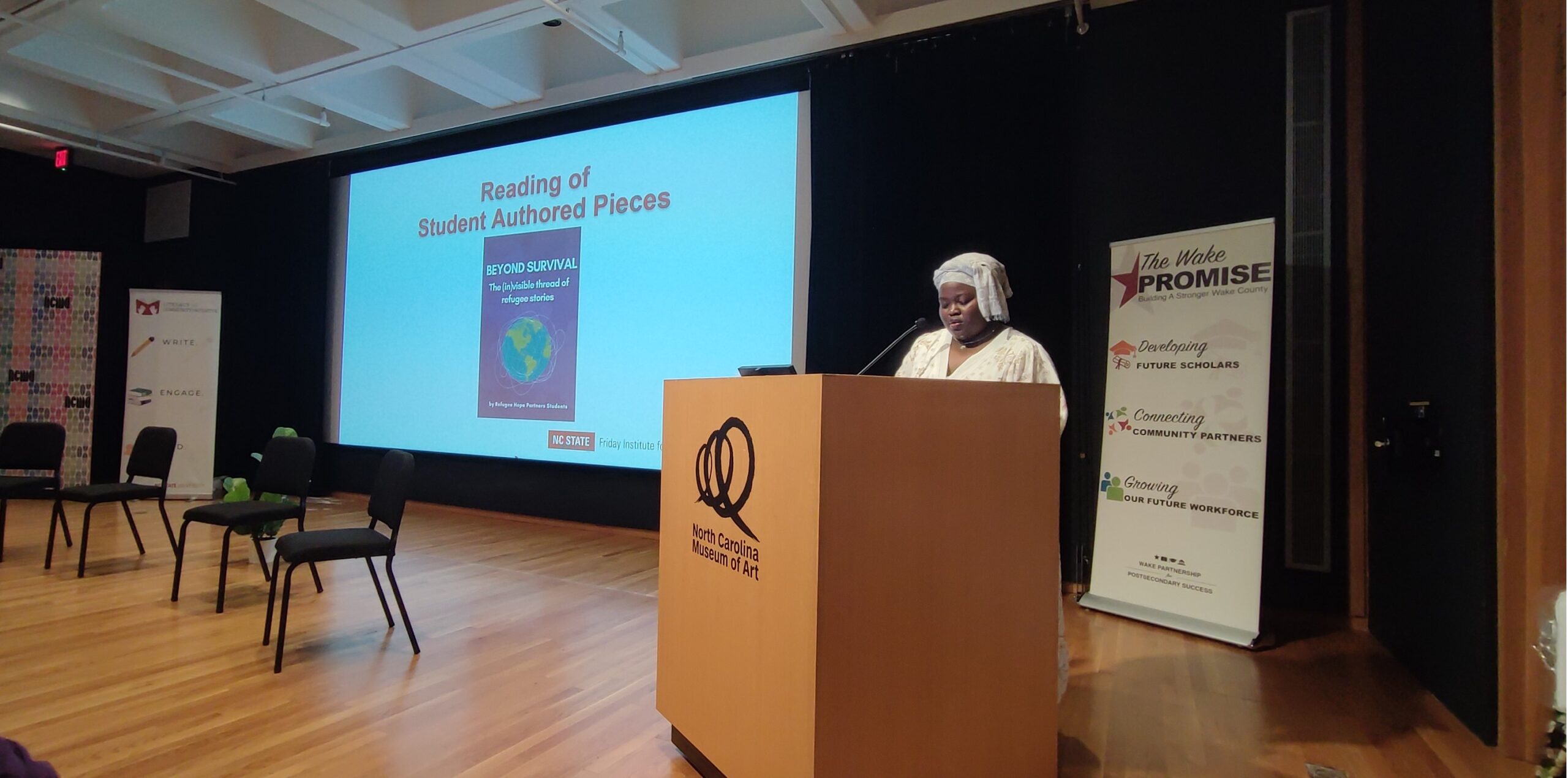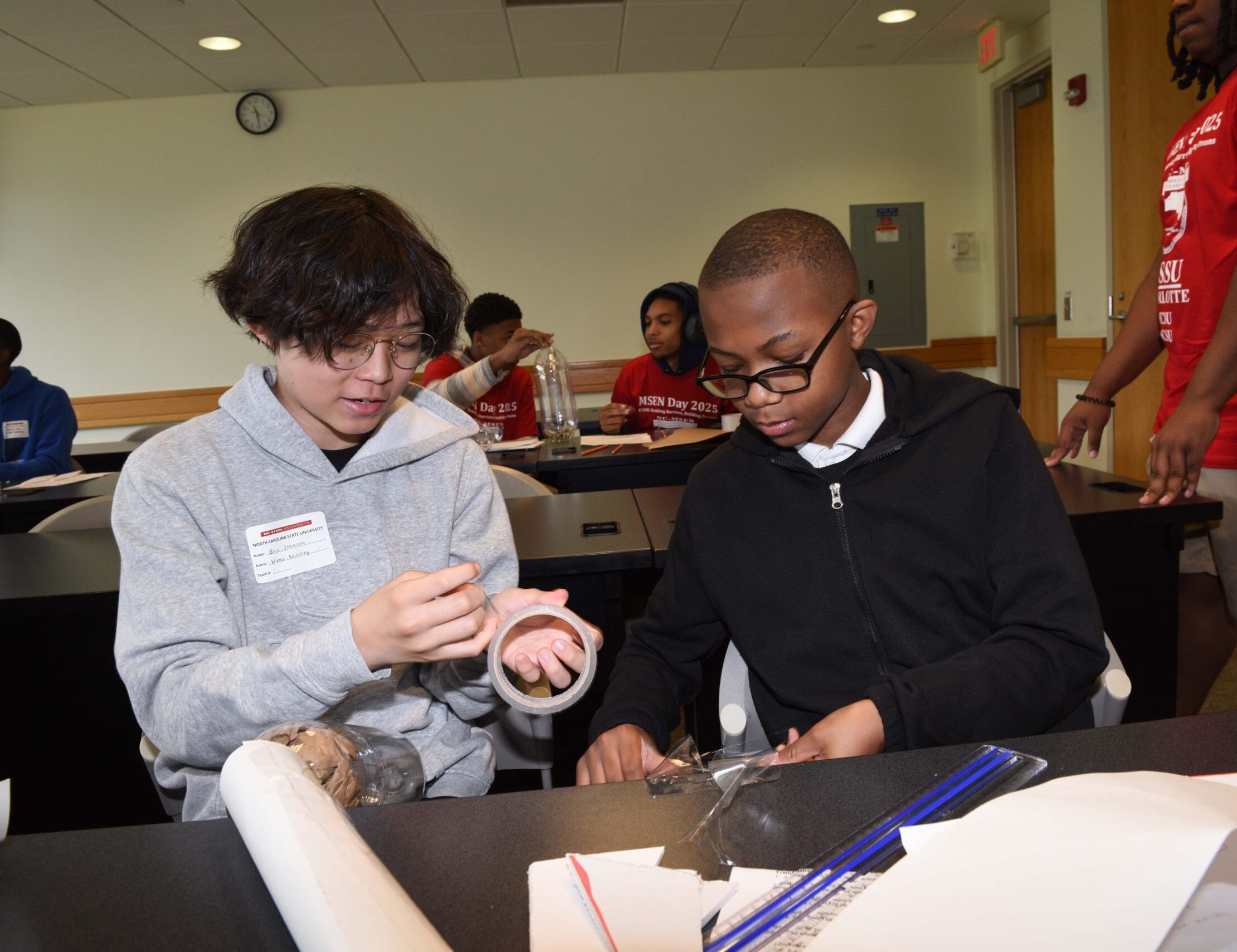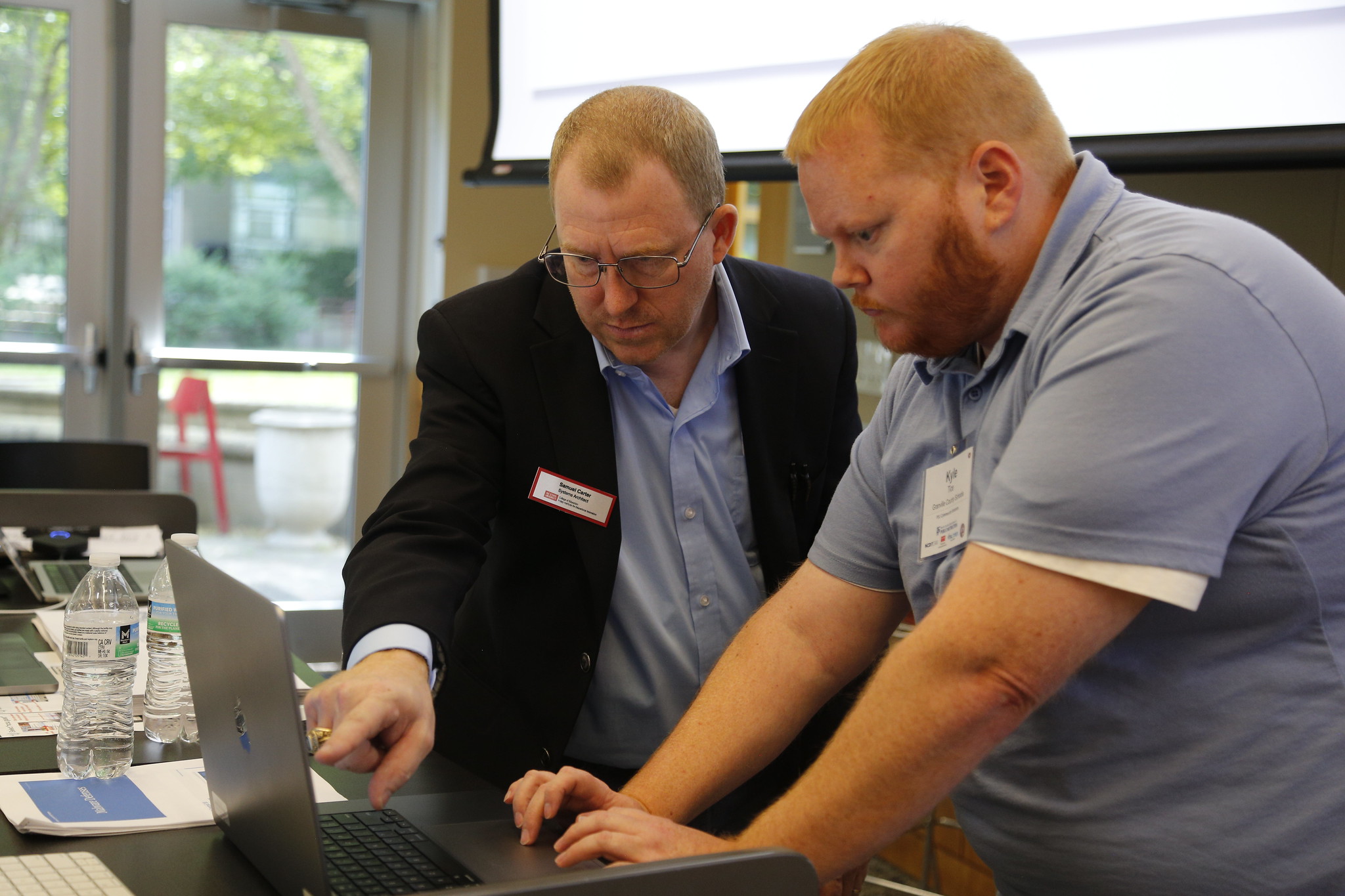Did you know there’s a middle school on NC State’s campus?
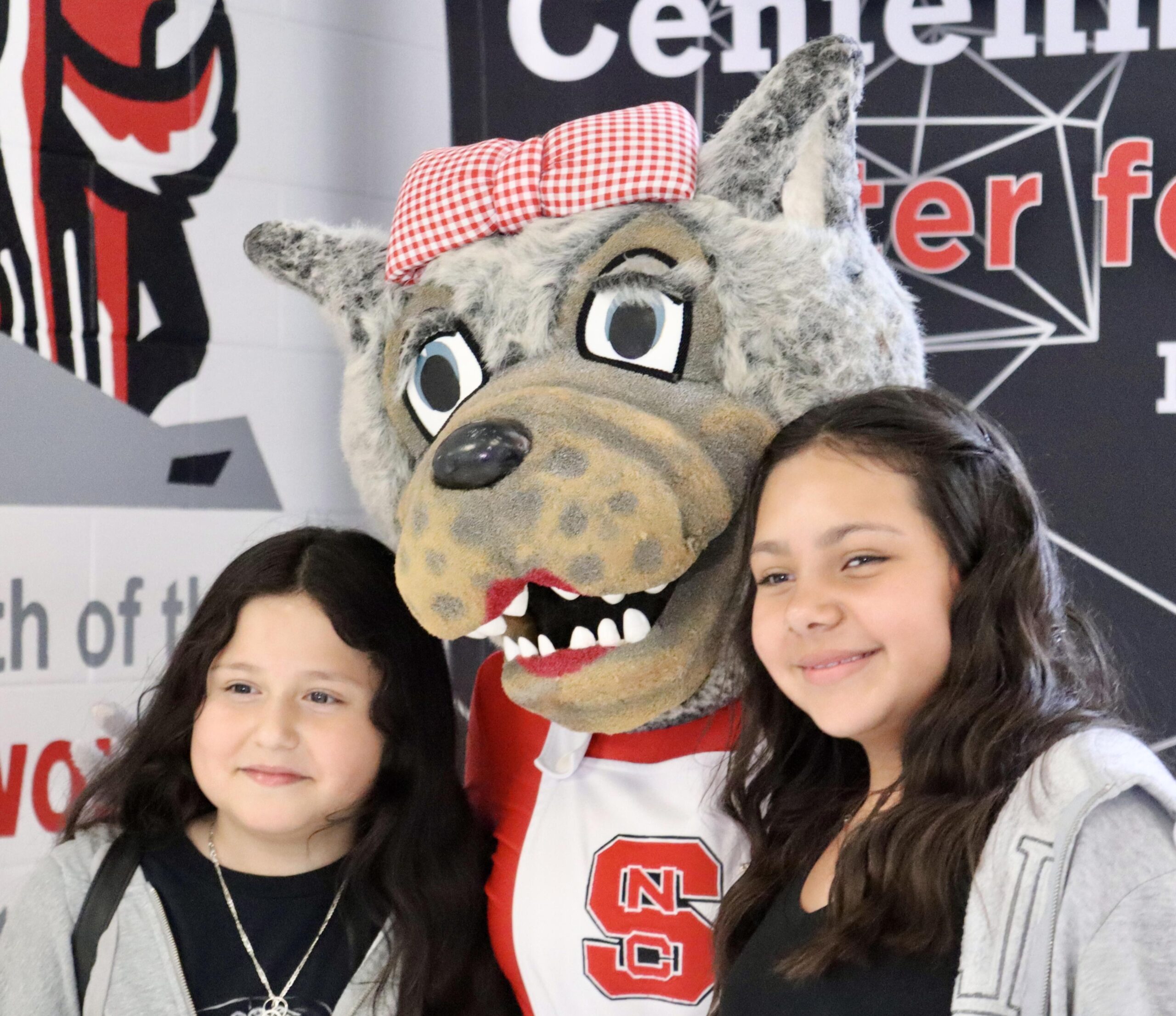
How many middle school students have the opportunity to visit NC State’s Nuclear Reactor Program, work with staff at the Gregg Museum of Art & Design for their art elective and learn how to be an entrepreneur at the NC State Entrepreneurship Garage and the Albright Entrepreneurs Village? Those who attend Centennial Campus Magnet Middle School (CCMMS) do, and these are just a few of the perks students get from their unique location on NC State’s Centennial Campus. From hosting NC State University guest speakers and NC State College of Education student teachers to participating in the innovative practices and research conducted at the College of Education’s Friday Institute for Educational Innovation, CCMMS students have the opportunity to get firsthand exposure and access to the university experience like no other school in the area.
“I like the amount of opportunities we get and the field trips we get,” said a seventh grader at CCMMS. “In [the] Innovation elective we got to go to the Plant Sciences Initiative. While we were there, they taught us about what they were working on. The greenhouse on the roof was cool because they experimented with different plants and were figuring out how to separate different things from each other. I like having people from NC State visit our school to help us.”
The CCMMS Red Wolves have been on Centennial Campus since 2000 as part of the Wake County Public School System (WCPSS). The initial vision of the school’s location emerged from North Carolina Gov. James B. Hunt, Jr. ’59, ’62, who conceived of the idea of a research institution attached to a middle school, connecting middle school students to professors and college students and delivering innovative teaching and learning strategies into the WCPSS. Today, CCMMS and the Friday Institute are neighbors with a shared commitment to learners, both students and educators, and have partnered on dozens of projects.
“We want our students to see themselves as part of the community at large, but really, specifically the NC State community as well,” said Rachel Hensey, magnet coordinator at CCMMS. “Between taking our students places and then also bringing NC State faculty and staff onto campus as guest speakers or to lead activities, it’s just a really powerful connection. And I hear our students talk about college and future careers in a way that I’m not used to hearing students talk about it.”
The Perks
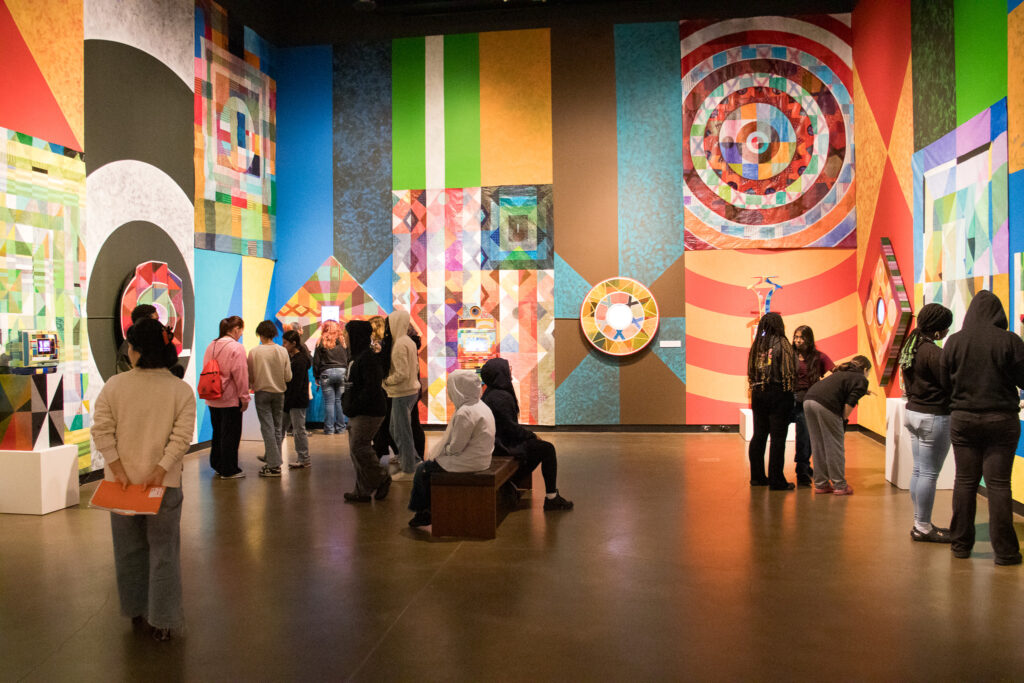
NC State employees who want to send their children to CCMMS receive special benefits, including receiving priority enrollment for students and having the same spring break, but the most valuable benefit comes down to proximity.
“It’s a little bit of peace of mind knowing that I’m pretty close, and that it is familiar,” said Tommy Holden, teaching professor of outdoor leadership at the Department of Health and Exercise Studies in the University College and parent of a sixth grader at CCMMS. “Not only while I’m working, but at home…that’s great for us. There’s just, I don’t know, kind of peace of mind knowing that he’s at a place that I frequently visit.”
Also, having a middle school on NC State’s campus allows opportunities and access to a university that most students, let alone the public, may never have. The exposure students have to a university and the attainability of a post-secondary education is invaluable.
“We get to meet NC State students who come to visit us and learn what they are doing,” said a seventh grader at CCMMS. “That helps us think about what we might like to do in the future.”
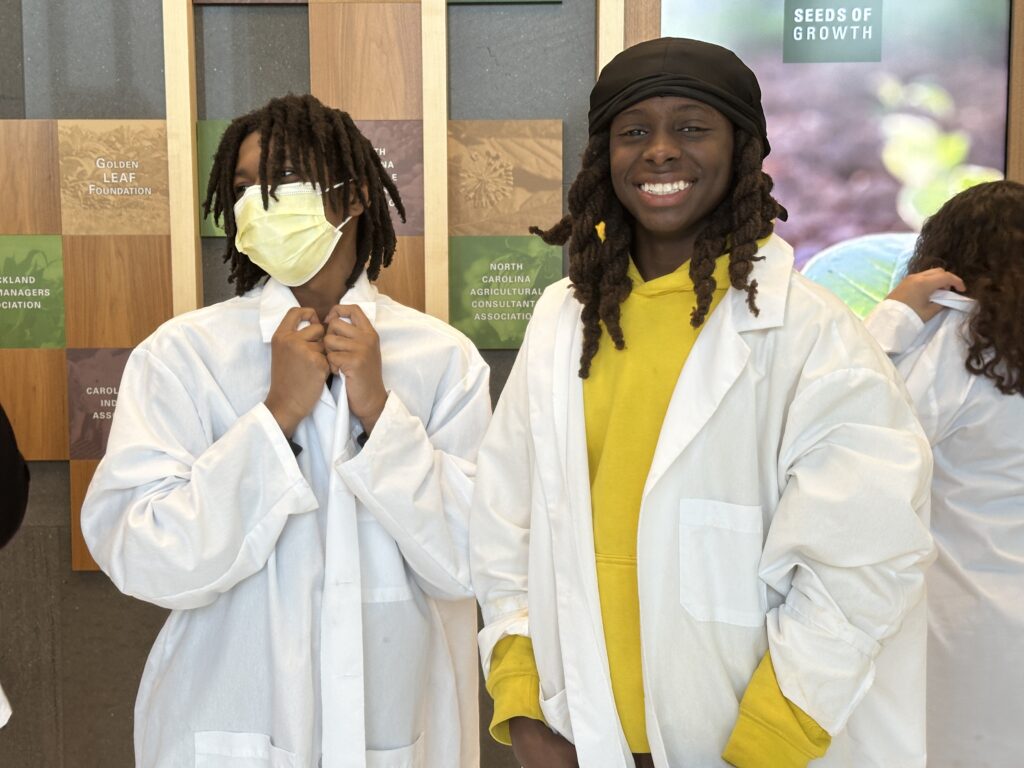
CCMMS is the only magnet school in the district to offer the innovation theme—an important part of NC State’s practice that leans into the learning approach of design thinking. Students are developed to exhibit nine characteristics of an innovator to prepare them for their futures.
“I think Centennial is developing into a premier magnet opportunity for students and staff,” said Jesse Gore ’11,’15MED,’20MSA, principal of CCMMS. “We want to give students a unique experience being so closely connected with NC State so that they can have options for the future and excitement for what the future can hold. But also our goal here is to teach students these important skills that they need to be successful in an ever-changing world.”
The Magnet Schools of America recognized CCMMS as a 2025 Magnet Merit School Of Excellence this year.
Partnership and Pre-Service

One current program students participate in school wide is the Friday Institute’s Project-Based Inquiry (PBI) program, led by their New Literacies Collaborative team. Supporting CCMMS’ innovation theme, PBI is an interdisciplinary inquiry-to-action instructional process that cultivates students’ agency toward solving complex, enduring glocal (global + local) challenges, like the UN Sustainable Development Goals. Within the inquiry-to-action process, students ask compelling questions; gather and analyze sources; creatively synthesize claims and evidence; critically evaluate and revise; and share, publish and act.
Throughout the 2024-25 academic year, Friday Institute staff have collaborated with CCMMS leadership and coached grade-level teacher teams as they design and implement glocally-focused (global+local), interdisciplinary inquiry-to-action projects through PBI. Grade six is focusing on food security, grade seven on positive community impact through the arts and grade eight on growing and composting food. But this is not the first time CCMMS has partnered on this project.
“The opportunity to partner with CCMMS again is a really full circle moment for me; on my first day at the Friday Institute 10 years ago, my mentor and former supervisor, Dr. Hiller Spires, invited me to Discovery Classroom at the Friday Institute to work with a group of CCMMS students as they prepared multimodal products as part of a cross-cultural PBI with a partner school in Beijing, China,” said Marie Himes, director of the New Literacies Collaborative. “To be reinvesting in our collaborative work around standards-aligned, inquiry- and project-based learning is an honor. I truly value the sense of purpose the Friday Institute shares with CCMMS for educational innovation that leads to meaningful learning and purposeful actions for all students and look forward to our continued partnership.”
CCMMS teachers have also found value in the partnership and its proximity to school.
“Having recent research at my fingertips is great,” said April Porter, sixth grade ELA teacher at CCMMS. “Having someone right next door that I can talk to and make plans with, make phone calls, touch base ideas, all those things. It’s just really nice to have someone next door that you participated in a professional development with…and you can call and ask questions or email and you have, you know, a relationship with that person.”

Another program that has been integral to CCMMS’ partnership with NC State is the College of Education’s student teacher program, part of their ED 204: Introduction to Teaching in Today’s Schools course. Since 2019, about 50 students have done their pre-service learning at CCMMS or Wake STEM Early College High School each semester, visiting each school about 10-12 times, co-constructing field experiences and assignments with teachers, working in small student groups, participating in professional learning communities and volunteering at school events. This unique partnership model allows students the peace of mind and low barrier to entry that they will be placed at a school close to campus and will work with the same teachers who have worked with the course’s students for years.
“The culture at Centennial has always been very open door,” said Sarah Cannon, director of professional education in the College of Education. “The administration has really encouraged our students to ask questions whenever they see things they don’t understand and just have active two-way communication. And so that’s been super beneficial.”
The relationship between CCMMS and NC State continues to grow stronger as each partner brings something new to the table. In the end, it’s the students from both schools that benefit most.
“I think there’s mutually beneficial pieces to this where NC State can kind of give our students exposure that they would not otherwise have,” said Gore. “But also we have an opportunity to connect with the college to give them experiences that they might not typically have at other schools as well.”
Contact Magnet Coordinator Rachel Hensey at rfrasier@wcpss.net to set up a tour or inquire about applying for registration for the 25-26 school year and beyond.
- Categories:
